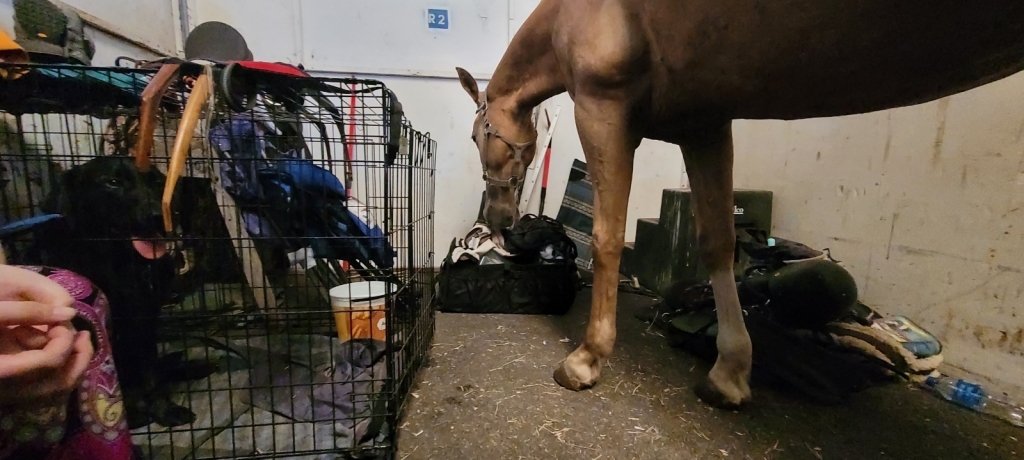The United States of Aftermath.
Shared from Truth-Out, by William Rivers Pitt.
It’s hard to say grace and to sit in the place
Of someone missing at the table
Mom’s hair sprayed tight
And her face in her hands
Watching TV for answers to me
After all she’s only human
And she’s trying to find her own way home, boys
She’s trying to find her own way home
My legs ache
My heart is sore
The well is full of pennies
– Tom Waits
Ten years ago on this day, my life was a blur of frantic activity. The week before, tens of millions of people had taken to the streets in more than 600 cities around the world to protest the looming invasion of Iraq, an attack that had been pursued with single-minded ferocity by the administration of George W. Bush. As the author of the book “War on Iraq”, which had been published in October and argued Iraq had no weapons of mass destruction or al Qaeda connections to the September 11 attacks, I was one of the voices crying out in the wilderness of the “mainstream” news media trying to make it clear that the whole thing was a sham, and a disaster in the making. I did as many television, radio and print interviews as I could – at one point, CNN interviewed me in the gymnasium of the high school where I was still teaching, because that was the only time I had available – in an attempt to halt the calamity in its tracks.
One month later, I and every other person who tried to stop it encompassed the totality of our collective failure as we watched huge swaths of Baghdad be incinerated by the “Shock and Awe” bombing campaign that heralded the opening festivities of America’s nine-year debacle in Iraq.
As the ten-year anniversary of the invasion approaches, all the news networks will carve out some time to report on the decade of war endured by the people of Iraq and the people of America. Rachel Maddow recently broadcast an hour-long documentary on the selling of the war by the Bush administration. Maddow’s program began with the attacks of September 11 as the reason for the Iraq invasion, a starting point that in all probability will be repeated by the other networks, but that starting point is not factually correct. The roots of the Iraq war trace back to the founding in 1997 of a Washington DC think-tank called The Project for a New American Century (PNAC).
The core mission of PNAC was to establish what they called “Pax Americana” across the globe. Essentially, their goal was to transform America, the sole remaining superpower, into a planetary empire by force of arms. A report released by PNAC in September of 2000 entitled “Rebuilding America’s Defenses” codified this plan. Author Norman Podhoretz, a PNAC signatory, quantified the other aspect of the PNAC plan in the September 2002 issue of his journal, “Commentary.” In it, Podhoretz noted that the Mideast regimes “that richly deserve to be overthrown and replaced, are not confined to the three singled-out members of the axis of evil. At a minimum, the axis should extend to Syria and Lebanon and Libya, as well as ‘friends’ of America like the Saudi royal family and Egypt’s Hosni Mubarak, along with the Palestinian Authority, whether headed by Arafat or one of his henchmen.” At bottom, according to Podhoretz, war against Iraq was about “the long-overdue internal reform and modernization of Islam.”
PNAC was the driving force behind the drafting and passage of the Iraqi Liberation Act in 1998, a bill that essentially turned their desire for war into American law. PNAC funneled millions of taxpayer dollars to a group called the Iraqi National Congress, and to the man they intended to be Iraq’s heir-apparent, Ahmed Chalabi, despite the fact that Chalabi was sentenced in absentia by a Jordanian court to 22 years in prison on 31 counts of bank fraud. Chalabi and the INC gathered support for their cause by promising oil contracts to anyone who would help overthrow Saddam Hussein and put them into power in Iraq.
After the Supreme Court gifted the presidency to George W. Bush in December of 2000, the members of PNAC – once on the outside looking in – soon found themselves walking the halls of power and holding positions of enormous influence. Among these members were Vice President Dick Cheney; Lewis “Scooter” Libby, Cheney’s chief of staff; Secretary of Defense Donald Rumsfeld; Deputy Secretary of Defense Paul Wolfowitz; National Security Council member Eliot Abrams; Undersecretary of State John Bolton, who also served as America’s ambassador to the UN; and Richard Perle, chairman of the powerful Defense Policy Board.
On September 11, 2001, as America and the world watched in horror, these men went to work implementing their plans for war against Iraq. That day presented, for them, the opportunity of a lifetime, and they wasted not a moment. Within a year after the 9/11 attacks, Paul Wolfowitz and Undersecretary of Defense Douglas Feith had established the Office of Special Plans (OSP) in the Pentagon, ostensibly to deal with raw intelligence on the state of Iraq’s armaments. In truth, OSP’s main task was to manipulate that evidence to exacerbate the threat posed by Iraq, and to quash any information that augured against the necessity for war. Those who spoke out against this manipulation of evidence were dealt with harshly; former ambassador Joseph Wilson penned an editorial in the New York Times trashing the Bush administration’s claim that Iraq had sought “yellow cake” uranium from Niger. Soon after, the Bush administration retaliated by blowing the cover of Wilson’s wife, Valerie Plame, a CIA operative tasked with tracking weapons of mass destruction, ending her career.
George W. Bush, during his State of the Union address in January of 2003, looked solemnly into the television cameras and told the American people that Iraq was most assuredly in possession of 26,000 liters of anthrax, 38,000 liters of botulinum toxin, 30,000 munitions to deliver the stuff, mobile biological weapons labs, and uranium from Niger for use in their “robust” nuclear weapons programs. One month later, Colin Powell stood before the United Nations and fleshed out these claims in an address that will go down in history as one of the biggest bag-jobs ever perpetrated by anyone, ever.
A year after the attacks of September 11, Osama bin Laden had gone from being enemy #1 to being Mr. Who Cares About Him, and six months after that, “Shock and Awe” was unleashed. Maddow and her friends in the “news” media will, in the coming weeks, give us their various interpretations on how it came to happen, but none of them will bother to delve into the question of why it happened. The answer to that is too simple, and cuts too close to the bone: the war in Iraq cost more than three trillion dollars ($3,000,000,000,000.00) to execute. Every bullet fired, every bomb dropped, every MRE eaten, every helicopter shot down, every missile fired, every truck destroyed by an IED, every oil well guarded, every uniform worn, and every body bag filled translated into a slice of that money going to a company connected to the PNAC members of the Bush administration, who lied us into that war as an expression of their personal principles and in fulfillment of their dreams. Halliburton, KBR, United Defense, the Carlyle Group, independent military contractors like Blackwater and a crowd of American oil companies are still counting the riches they earned from their participation in the carnage.
Truthout needs your support to produce grassroots journalism and disseminate conscientious visions for a brighter future. Contribute now by clicking here.
The profit motive behind why the war happened is not limited to the corporations that directly cashed in on the conflict. The “mainstream” media went along for the Bush administration ride with a bull-throated roar, pitching everything the administration was selling with graphics and music, gleefully aware of the money they were making thanks to increased viewership, and be damned to contrarian voices. Phil Donahue’s show on MSNBC came and went like a summer storm entirely because his pre-war contrarian views cut against the network’s martial grain. I summarized the reality of America’s pre-war media landscape in an October 2002 article titled, “I See Four Lights”:
One of the main reasons the dismal truths of business and economy in present-day America go unreported is the fact that we have us a war coming on. CNN, MSNBC and Fox have crafted various permutations of a ‘SHOWDOWN WITH IRAQ’ graphic, coupled with suitably dramatic music. This is a boon to the media – stories of financial ruin and stock schemes that bilked investors of billions are complicated. Compared to grainy images of explosions, fluttering American flags, and stalwart American troops preparing to step into harm’s way, the economic news is plain boring. People were changing the channel back in July and August because it was too painful, and because it was not sexy. Now, with the war graphics in full cry, they are back. CNN’s viewership increased by 500% after September 11th, and you can bet the executives down in Atlanta noted that well. War is good for the media business.
Over the last few years, MSNBC refashioned itself as the progressive news alternative to networks like Fox and CNN by giving Keith Olbermann an opportunity to do actual journalism on television for a few years, and by putting people like Rachel Maddow and Ed Schultz front and center. Even Chris Matthews, the human weathervane, appears to have gotten the memo. But I remember a phone call I got from an MSNBC producer in February of 2003. Hans Blix and his weapons inspectors had not been in Iraq for 100 hours when this woman called me on my cell, told me she’d read my book, and asked me to appear on the network. There was, however, one caveat: she told me I was expected to argue that Blix and the inspectors were doing a terrible job and should be ignored, which just happened to be the exact line being peddled at the time by the Bush administration. I told the producer that I did not agree, that the inspectors needed to be given time to do their jobs, and that undermining them might lead to a devastating war. The MSNBC producer chuffed a cigarette-roughened laugh into my phone and hung up on me.
That happened – I remember the details not only because of how gruesome the conversation was, but because when she hung up on me, I almost lost control of my car and nearly wound up in the Charles River – and the fact of it tells you everything you need to know about MSNBC and the rest of the alphabet-soup cohort that is America’s “mainstream” news media. I did not do what that MSNBC producer asked me to, but you can bet all the money you have that she found someone who would a few phone calls later. You might have even seen it on TV.
MSNBC and the rest of the “news” networks can level a finger of blame at the Bush administration until the sun burns out, but the rock-bottom fact of the matter is that every one of those networks are equally to blame for the catastrophe that was, and remains, the war. No questions were asked, no push-back was offered; when the war cry went up, they made that cry their own, and they have as much blood on their hands as Bush, Cheney, Rumsfeld and the rest of that PNAC crew.
The war against Iraq, in the end, was nothing more or less than a massive money-laundering operation that took American taxpayer dollars, soaked them in blood, and redirected them to Certain Friends In High Places. It was, as I said years ago, a smash-and-grab robbery writ large, aided and abetted by an American “news” media which had its own profit motive, and which made a nifty sum off the whole deal. Even better for them, today they get to enjoy the ratings and advertising dollars to come when they broadcast their somber “documentaries” about how terrible it all was, how many lies were told, how many mistakes were made, and all without ever looking inward at their own enormous complicity.
They say the war is over now, but Halliburton is still getting paid to “rebuild” Iraq, the military contractors are still there, bombs are still going off all over the country, the hundreds of thousands of civilians who were killed are still dead, the hundreds of thousands of civilians who were wounded and maimed are still scarred, and many of the millions who were displaced are still not home. Almost 5,000 American soldiers are still dead, nearly 40,000 more are still scarred, and the VA is utterly incapable of dealing with the aftermath.
Three trillion dollars of taxpayer money was laundered away, and today we have squadrons of politicians who voted for the war and made sure it happened now talking about cutting Medicare, about cutting Social Security, about how we can’t afford decent health care or the United States Post Office, without even a blink of acknowledgement toward their own overwhelming share of blame for what has happened to the nation.
Ten years ago, they used 9/11 against us, with the happy help of the “news” media, to unleash butchery for a payday, and broke the country in the process.
So you remember, so you never, ever forget, this is how they did it.
“Simply stated, there is no doubt that Saddam Hussein now has weapons of mass destruction.”
– Dick Cheney, Vice President
Speech to VFW National Convention
8/26/2002
“There is already a mountain of evidence that Saddam Hussein is gathering weapons for the purpose of using them. And adding additional information is like adding a foot to Mount Everest.”
– Ari Fleischer, Press Secretary
Response to Question From the Press
9/6/2002
“We don’t want the smoking gun to be a mushroom cloud.”
– Condoleezza Rice, US National Security Adviser
CNN Late Edition
9/8/2002
“Right now, Iraq is expanding and improving facilities that were used for the production of biological weapons.”
– George W. Bush, President
Speech to the UN General Assembly
9/12/2002
“Iraq has stockpiled biological and chemical weapons, and is rebuilding the facilities used to make more of those weapons. We have sources that tell us that Saddam Hussein recently authorized Iraqi field commanders to use chemical weapons – the very weapons the dictator tells us he does not have.”
– George W. Bush, President
Radio Address
10/5/2002
“The Iraqi regime … possesses and produces chemical and biological weapons. It is seeking nuclear weapons. We know that the regime has produced thousands of tons of chemical agents, including mustard gas, sarin nerve gas, VX nerve gas.”
– George W. Bush, President
Cincinnati, Ohio, Speech
10/7/2002
“And surveillance photos reveal that the regime is rebuilding facilities that it had used to produce chemical and biological weapons.”
– George W. Bush, President
Cincinnati, Ohio, Speech
10/7/2002
“After 11 years during which we have tried containment, sanctions, inspections, even selected military action, the end result is that Saddam Hussein still has chemical and biological weapons and is increasing his capabilities to make more. And he is moving ever closer to developing a nuclear weapon.”
– George W. Bush, President
Cincinnati, Ohio, Speech
10/7/2002
“We’ve also discovered through intelligence that Iraq has a growing fleet of manned and unmanned aerial vehicles that could be used to disperse chemical or biological weapons across broad areas.”
– George W. Bush, President
Cincinnati, Ohio, Speech
10/7/2002
“Iraq, despite UN sanctions, maintains an aggressive program to rebuild the infrastructure for its nuclear, chemical, biological, and missile programs. In each instance, Iraq’s procurement agents are actively working to obtain both weapons-specific and dual-use materials and technologies critical to their rebuilding and expansion efforts, using front companies and whatever illicit means are at hand.”
– John Bolton, Undersecretary of State for Arms Control
Speech to the Hudson Institute
11/1/2002
“Iraq could decide on any given day to provide biological or chemical weapons to a terrorist group or to individual terrorists … The war on terror will not be won until Iraq is completely and verifiably deprived of weapons of mass destruction.”
– Dick Cheney, Vice President
Denver, Address to the Air National Guard
12/1/2002
“If he declares he has none, then we will know that Saddam Hussein is once again misleading the world.”
– Ari Fleischer, Press Secretary
Press Briefing
12/2/2002
“The president of the United States and the secretary of defense would not assert as plainly and bluntly as they have that Iraq has weapons of mass destruction if it was not true, and if they did not have a solid basis for saying it.”
– Ari Fleischer, Press Secretary
Response to Question From the Press
12/4/2002
“We know for a fact that there are weapons there.”
– Ari Fleischer, Press Secretary
Press Briefing
1/9/2003
“The British government has learned that Saddam Hussein recently sought significant quantities of uranium from Africa. Our intelligence sources tell us that he has attempted to purchase high-strength aluminum tubes suitable for nuclear weapons production.”
– George W. Bush, President
State of the Union Address
1/28/2003
“Our intelligence officials estimate that Saddam Hussein had the materials to produce as much as 500 tons of sarin, mustard and VX nerve agent.”
– George W. Bush, President
State of the Union Address
1/28/2003
“We know that Saddam Hussein is determined to keep his weapons of mass destruction, is determined to make more.”
– Colin Powell, Secretary of State
Remarks to the UN Security Council
2/5/2003
“There can be no doubt that Saddam Hussein has biological weapons and the capability to rapidly produce more, many more. And he has the ability to dispense these lethal poisons and diseases in ways that can cause massive death and destruction. If biological weapons seem too terrible to contemplate, chemical weapons are equally chilling.”
– Colin Powell, Secretary of State
Address to the UN Security Council
2/5/2003
“In Iraq, a dictator is building and hiding weapons that could enable him to dominate the Middle East and intimidate the civilized world – and we will not allow it.”
– George W. Bush, President
Speech to the American Enterprise Institute
2/26/2003
“So has the strategic decision been made to disarm Iraq of its weapons of mass destruction by the leadership in Baghdad? I think our judgment has to be clearly not.”
– Colin Powell, Secretary of State
Remarks to the UN Security Council
3/7/2003
“Let’s talk about the nuclear proposition for a minute. We know that, based on intelligence, that has been very, very good at hiding these kinds of efforts. He’s had years to get good at it and we know he has been absolutely devoted to trying to acquire nuclear weapons. And we believe he has, in fact, reconstituted nuclear weapons.”
– Dick Cheney, Vice President
“Meet the Press”
3/16/2003
“Intelligence gathered by this and other governments leaves no doubt that the Iraq regime continues to possess and conceal some of the most lethal weapons ever devised.”
– George W. Bush, President
Address to the Nation
3/17/2003
“Well, there is no question that we have evidence and information that Iraq has weapons of mass destruction, biological and chemical particularly … all this will be made clear in the course of the operation, for whatever duration it takes.”
– Ari Fleischer, Press Secretary
Press Briefing
3/21/2003
“One of our top objectives is to find and destroy the WMD. There are a number of sites.”
– Victoria Clark, Pentagon Spokeswoman
Press Briefing
3/22/2003
“I have no doubt we’re going to find big stores of weapons of mass destruction.”
– Kenneth Adelman, Defense Policy Board Member
Washington Post, p. A27
3/23/2003
“We know where they are. They’re in the area around Tikrit and Baghdad and east, west, south and north somewhat.”
– Donald Rumsfeld, Secretary of Defense
ABC Interview
3/30/2003
“We still need to find and secure Iraq’s weapons of mass destruction facilities and secure Iraq’s borders so we can prevent the flow of weapons of mass destruction materials and senior regime officials out of the country.”
– Donald Rumsfeld, Secretary of Defense
Press Conference
4/9/2003
“You bet we’re concerned about it. And one of the reasons it’s important is because the nexus between terrorist states with weapons of mass destruction … and terrorist groups – networks – is a critical link. And the thought that … some of those materials could leave the country and in the hands of terrorist networks would be a very unhappy prospect. So it is important to us to see that that doesn’t happen.”
– Donald Rumsfeld, Secretary of Defense
Press Conference
4/9/2003
“But make no mistake – as I said earlier – we have high confidence that they have weapons of mass destruction. That is what this war was about and it is about. And we have high confidence it will be found.”
– Ari Fleischer, Press Secretary
Press Briefing
4/10/2003
“Were not going to find anything until we find people who tell us where the things are. And we have that very high on our priority list, to find the people who know. And when we do, then well learn precisely where things were and what was done.”
– Donald Rumsfeld, Secretary of Defense
“Meet the Press”
4/13/2003
“We are learning more as we interrogate or have discussions with Iraqi scientists and people within the Iraqi structure, that perhaps he destroyed some, perhaps he dispersed some. And so we will find them.”
– George W. Bush, President
NBC Interview
4/24/2003
“We’ll find them. It’ll be a matter of time to do so.”
– George W. Bush, President
Remarks to Reporters
5/3/2003
“I’m absolutely sure that there are weapons of mass destruction there and the evidence will be forthcoming. We’re just getting it just now.”
– Colin Powell, Secretary of State
Remarks to Reporters
5/4/2003
“We never believed that we’d just tumble over weapons of mass destruction in that country.”
– Donald Rumsfeld, Secretary of Defense
Fox News Interview
5/4/2003
“I’m not surprised if we begin to uncover the weapons program of Saddam Hussein – because he had a weapons program.”
– George W. Bush, President
Remarks to Reporters
5/6/2003
“U.S. officials never expected that ‘we were going to open garages and find’ weapons of mass destruction.”
– Condoleezza Rice, US National Security Adviser
Reuters Interview
5/12/2003
“We said all along that we will never get to the bottom of the Iraqi WMD program simply by going and searching specific sites, that you’d have to be able to get people who know about the programs to talk to you.”
– Paul Wolfowitz, Deputy Secretary of Defense
Interview with Australian Broadcasting
5/13/2003
“It’s going to take time to find them, but we know he had them. And whether he destroyed them, moved them or hid them, we’re going to find out the truth. One thing is for certain: Saddam Hussein no longer threatens America with weapons of mass destruction.”
– George W. Bush, President
Speech at a Weapons Factory in Ohio
5/25/2003
“They may have had time to destroy them, and I don’t know the answer.”
– Donald Rumsfeld, Secretary of Defense
Remarks to the Council on Foreign Relations
5/27/2003
“For bureaucratic reasons, we settled on one issue, weapons of mass destruction (as justification for invading Iraq) because it was the one reason everyone could agree on.”
– Paul Wolfowitz, Deputy Secretary of Defense
Vanity Fair Interview
5/28/2003
“The President is indeed satisfied with the intelligence that he received. And I think that’s borne out by the fact that, just as Secretary Powell described at the United Nations, we have found the bio trucks that can be used only for the purpose of producing biological weapons. That’s proof-perfect that the intelligence in that regard was right on target.”
– Ari Fleischer, Press Secretary
Press Briefing
5/29/2003
“We have teams of people that are out looking. They’ve investigated a number of sites. And within the last week or two, they have in fact captured and have in custody two of the mobile trailers that Secretary Powell talked about at the United Nations as being biological weapons laboratories.”
– Donald Rumsfeld, Secretary of Defense
Infinity Radio Interview
5/30/2003
“But for those who say we haven’t found the banned manufacturing devices or banned weapons, they’re wrong, we found them.”
– George W. Bush, President
Interview With TVP Poland
5/30/2003
“You remember when Colin Powell stood up in front of the world, and he said Iraq has got laboratories, mobile labs to build biological weapons … They’re illegal. They’re against the United Nations resolutions, and we’ve so far discovered two … And we’ll find more weapons as time goes on.”
– George W. Bush, President
Press Briefing
5/30/2003
“This wasn’t material I was making up, it came from the intelligence community.”
– Colin Powell, Secretary of State
Press Briefing
6/2/2003
“We recently found two mobile biological weapons facilities which were capable of producing biological agents. This is the man who spent decades hiding tools of mass murder. He knew the inspectors were looking for them. You know better than me he’s got a big country in which to hide them. We’re on the look. We’ll reveal the truth.”
– George W. Bush, President
Camp Sayliya, Qatar
6/5/2003
“I would put before you Exhibit A, the mobile biological labs that we have found. People are saying, ‘Well, are they truly mobile biological labs?’ Yes, they are. And the DCI, George Tenet, Director of Central Intelligence, stands behind that assessment.”
– Colin Powell, Secretary of State
Fox News Interview
6/8/2003
“No one ever said that we knew precisely where all of these agents were, where they were stored.”
– Condoleezza Rice, US National Security Adviser
“Meet the Press”
6/8/2003
“What the president has said is because it’s been the long-standing view of numerous people, not only in this country, not only in this administration, but around the world, including at the United Nations, who came to those conclusions … And the president is not going to engage in the rewriting of history that others may be trying to engage in.”
– Ari Fleischer, Press Secretary
Response to Question From the Press
“Iraq had a weapons program … Intelligence throughout the decade showed they had a weapons program. I am absolutely convinced with time we’ll find out they did have a weapons program.”
– George W. Bush, President
Comment to Reporters
6/9/2003
“The biological weapons labs that we believe strongly are biological weapons labs, we didn’t find any biological weapons with those labs. But should that give us any comfort? Not at all. Those were labs that could produce biological weapons whenever Saddam Hussein might have wanted to have a biological weapons inventory.”
– Colin Powell, Secretary of State
Associated Press Interview
6/12/2003
“My personal view is that their intelligence has been, I’m sure, imperfect, but good. In other words, I think the intelligence was correct in general, and that you always will find out precisely what it was once you get on the ground and have a chance to talk to people and explore it, and I think that will happen.”
– Donald Rumsfeld, Secretary of Defense
Press Briefing
6/18/2003
“I have reason, every reason, to believe that the intelligence that we were operating off was correct and that we will, in fact, find weapons or evidence of weapons, programs, that are conclusive. But that’s just a matter of time … It’s now less than eight weeks since the end of major combat in Iraq and I believe that patience will prove to be a virtue.”
– Donald Rumsfeld, Secretary of Defense
Pentagon Media Briefing
6/24/2003
“I think the burden is on those people who think he didn’t have weapons of mass destruction to tell the world where they are.”
– Ari Fleischer, Press Secretary
Press Briefing
7/9/2003















